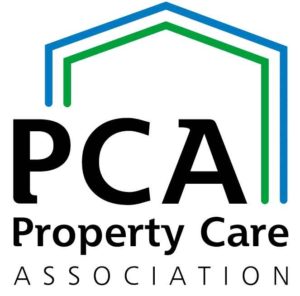
National trade body The Property Care Association (PCA) has launched a new training programme to help develop the skills of surveyors involved with homes that could be affected by dampness resulting from inadequate ventilation.
‘Evaluating ventilation in existing buildings” has been created to give professionals the skills and confidence to make informed evaluations of the ventilation in homes.
This one-day course is aimed at those already involved in surveying buildings, who recognise that understanding the way buildings deals with airborne moisture is becoming as important as dampness in the walls.
It provides delegates with the knowledge and skills necessary to identify and understand background infiltration and fixed ventilation, as well as the evaluation of the effectiveness of ventilation systems 1-4 as defined in approved document F of the building regulations.
Students will also be taught how to use their informed site observations to assess the risk and understand the implications of moisture related problems.
Steve Hodgson, chief executive of the Property Care Association, (PCA) said: “Condensation and mould is now the most common form of dampness in buildings.
“High fuel costs, insulation and draught-proofing compounded by the changing ways we occupy our homes have resulted in higher levels of indoor moisture.
“Unfortunately, despite this, many homes still lack adequate provision for air exchange or have fans installed that fail to deal effectively with these changing internal conditions. The result is poor indoor air quality, dampness and mould.
“It is becoming essential for anyone who inspects buildings to understand the significant role that ventilation plays in delivering comfortable, healthy and safe homes.
“This new training course delivers the knowledge that surveyors must now have.”
The programme was launched in June at the PCA’s two-day International Residential Ventilation and Building Preservation Conference.
The first course is being held on 31 July, at the PCA’s training centre in Huntingdon, at a special rate of £100 plus VAT, (normal rate £185 plus VAT).
More details can be found at https://www.property-care.org/training-qualifications/pca-surveyor-training/surveying-of-residential-ventilation-systems
The issue of effective ventilation is a major focus of the PCA.
As well as the International Residential Ventilation & Preservation of Buildings Conference, and the trade body’s training programme, other initiatives from the PCA include the development of a Residential Ventilation Group (RVG), the publication of a ‘Code of Practice for the Investigation and Provision of Ventilation in Existing Dwellings’ and a Knowledge Transfer Partnership with the University College London Institute for Environmental Design and Engineering (UCL IEDE).
The PCA has also produced a video offering a comprehensive overview of the issues faced.
Featuring interviews with academics at University College London Institute for Environmental Design and Engineering (UCL IEDE), the short film is available to view below:
In 2018, the PCA launched its new ‘Ventilation Contractor’ membership to tackle excess moisture in buildings.
Membership applications are now being accepted for this new trade body group, set up to improve ventilation and air quality in UK homes, which will include training programmes, such as the course listed above, and other initiatives.
Dave Cook, Chair of the RVG, said: “The PCA has created the Residential Ventilation Group (RVG) to provide an increased focus on addressing the issue of excess atmospheric moisture in buildings which do not have adequate or effective ventilation.
“Moisture held in the air has always been of great importance to all surveyors.
“While the ventilation industry has moved a very long way to satisfy the needs of housebuilders, people that have mould problems in older houses and flats still struggle to find practitioners who can provide detailed diagnostic evaluation followed up with accurate advice on improving ventilation.
“Surveyors can provide advice on moisture production, heating and ventilation but usually the job of designing and specifying ventilation is passed to an electrician.
“Ultimately, PCA members understand the consequences of high humidity in homes, and deal with the consequences of poor air quality, condensation, dampness and mould, every day.
“As such, the PCA is well placed to create the new RVG and sector of membership to provide homeowners with a point of reference to find professionals who can understand the internal environment of their home and specify ventilation measures accordingly.”
To secure the Ventilation Contractor membership of the RVG group, applicants go through a similar rigorous application process as for other sectors of PCA to demonstrate their technical competence and service delivery.
More details can be found at http://www.property-care.org/membership/ventilation-contractor-application-pack/
According to the PCA, residential ventilation is critically important to tackle problems emerging in a new generation of humid homes, which the trade body’s members are increasingly encountering.
A number of factors are contributing to the rising trend, predominately linked with modern living – including increased levels of occupation and rising fuel costs, as well as a drive to make homes more energy efficient.
The trade body also cites efforts to reduce air leakage through draught proofing and retrofit insulation, as well as the changing climate patterns – featuring warmer, wetter weather – as being of significance.
In line with the growing significance of the issue, the PCA held a unique two-day event in June this year, bringing together a national and international perspective.
The trade body’s 2018 International Residential Ventilation & Preservation of Buildings Conference took place on the 14th and 15th June at The Slate, University of Warwick, in Coventry. To accommodate the significant interest shown in the subject, the event was moved from the PCA’s traditional one day property care conference format to a two-day event this year.
Speakers and panellists included representatives from RICS, the University College London Institute for Environmental Design and Engineering (UCL IEDE), UK Centre for Moisture in Buildings and Bangor University. Dr Fernanado Sarce-Thomann from Universidad Mayor, Chile, gave an international perspective on acceptable limits of moisture in homes. The ‘Evaluating ventilation in existing buildings’ training initiative was launched at the conference.
The ultimate aim of the PCA RVG Group is to drive customer satisfaction among home owners and building users, with access to good ventilation to create a healthy indoor environment.
Guidance-Document_Surveying-of-Ventilation-in-Existing-Residential-Dwellings_April-2018
